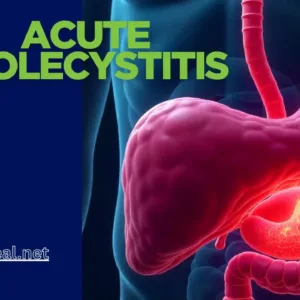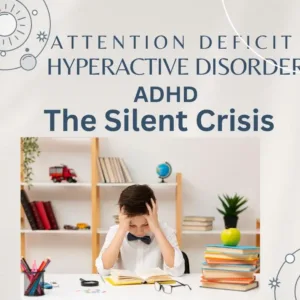Safe Acetaminophen dosage ;
The recommended maximum acetaminophen dosage is 4 grams/day for adults and 90 mg/kg/day for children.
People with underlying liver disease or those with chronic alcohol consumption are at an increased risk of developing hepatotoxicity (liver damage from chemicals) with the use of acetaminophen.

Toxicity Symptoms of Acetaminophen overdose.
Most patients who overdose on acetaminophen may initially be asymptomatic, as clinical symptoms of end-organ toxicity do not manifest until 24-48 hours after an acute ingestion. Therefore, to identify a patient who may be at risk of hepatoxicity, the time(s) of ingestion, the quantity, and the formulation of acetaminophen ingested plays a vital role .
Toxic acetaminophen Dose;
The minimum toxic doses of acetaminophen for a single ingestion, posing a significant risk of severe hepatotoxicity, are as follows:
- Adults: 7.5-10 g
- Children: 150 mg/kg; 200 mg/kg for healthy children aged 1-6 years
Phase 1( 0.5-24 hours) after ingestion ;
- Patients may exhibit no symptoms or report anorexia, nausea, vomiting, and malaise.
- Physical examination findings may include pallor, diaphoresis, malaise, and fatigue.
Phase 2 ( 18-72 h ) after ingestion ;
- Patients experience right upper quadrant abdominal pain, anorexia, nausea, and vomiting.
- Right upper quadrant tenderness may be observed, and
- Tachycardia and hypotension may suggest volume losses.
- Some patients may developed reduced urinary output (oliguria).
Phase 3: Hepatic phase ( 72-96 h ) after ingestion ;
- Patients continue to suffer from nausea, vomiting, abdominal pain, and may exhibit a tender hepatic edge.
- This phase is marked by the manifestation of hepatic necrosis and dysfunction, leading to jaundice, coagulopathy, hypoglycemia, and hepatic encephalopathy.
- Acute kidney injury may develop in critically ill patients.
- Progression may result in death from multiorgan failure.
Phase 4: Recovery phase (4 d to 3 wks.) after ingestion;
- Patients who survive the critical illness in phase 3 experience complete resolution of symptoms and organ failure.
Diagnosis of acetaminophen toxicity.
The initial approach for a doctor in diagnosing acetaminophen toxicity involves obtaining a comprehensive medical history. This includes gathering information on the time the medication was ingested, the quantity consumed, and the specific form of the medication. The confirmation of acetaminophen toxicity typically relies on diagnostic tests, encompassing an assessment of acetaminophen levels, electrolytes, kidney function tests, amylase, lipase, liver function tests, complete blood count, and coagulation factors.
Various imaging studies, such as ultrasound, may be employed to evaluate the enlargement of the liver. Additionally, a doctor might recommend a liver biopsy as part of the diagnostic process.
If you think you or someone you know has taken an overdose of acetaminophen, call 911 or your local emergency number immediately. Do not induce vomiting or give activated charcoal unless instructed to do so by a healthcare professional.
The severity of paracetamol overdose depends on several factors, including the amount ingested and how quickly medical attention is received. If treated promptly, it’s possible to prevent or minimize liver damage.
Management of acetaminophen overdose ;
The timely initiation of treatment is a critical aspect in managing acetaminophen toxicity, and healthcare professionals aim to commence intervention within eight hours of ingestion to optimize patient outcomes. This prompt response is crucial for mitigating the impact of acetaminophen overdose and ensuring the best possible result for the affected individual.
Treatment for paracetamol overdose typically includes:
- Activated charcoal is use to absorb paracetamol in the stomach.
- N-acetylcysteine, an antidote that helps to protect the liver.
- Supportive care, such as fluids and electrolytes
Prevention.
Here are some tips to prevent paracetamol overdose:
- Take paracetamol only as directed.
- Do not take more than the recommended dose.
- Do not take paracetamol with other medications that contain paracetamol.
- Keep paracetamol out of the reach of children.
If you have any questions or concerns about paracetamol overdose, talk to your healthcare professional.
Underlying conditions of acetaminophen toxicity.
Individuals with liver disease, alcohol abuse problems, or those taking medications that affect the liver should use paracetamol with caution and under the guidance of a healthcare professional.
Conclusions ;
Frequently asked Question (FAQ) about acetaminophen overdose ;
What is paracetamol (acetaminophen), and why is it commonly used?
Paracetamol, also known as acetaminophen in the United States and Canada, is a widely used over-the-counter pain reliever and fever reducer. It is often used to alleviate various types of pain and reduce fever.
What is a acetaminophen overdose?
Paracetamol overdose occurs when someone takes more than the recommended dose of paracetamol within a certain time frame, which can lead to potentially serious health complications.
What symptoms suggest acetaminophen toxicity?
Symptoms of paracetamol overdose can vary but may include nausea, vomiting, loss of appetite, abdominal pain, confusion, and in severe cases, liver damage.
How many 500mg acetaminophen can I take at once?
The recommended dose of paracetamol varies by age and weight. Typically, adults should not exceed 4,000 milligrams (4 grams) per day, and it's important to follow the dosing instructions on the packaging or provided by a healthcare professional.
Immediate Medical attention in Paracetamol overdose?
Even if symptoms are not severe, it's essential to get medical help promptly, as the effects of overdose can be delayed and potentially life-threatening.
How is paracetamol overdose treated?
The treatment for paracetamol overdose often involves administering a medication called N-acetylcysteine (NAC) to prevent or reduce liver damage. The earlier treatment is initiated, the better the chances of a full recovery.
Can overdose paracetamol cause death?
Yes, paracetamol overdose can be fatal, especially if left untreated or if a large amount of paracetamol is ingested. The risk of severe liver damage and failure is a significant concern in overdose cases.
Is it safe to mix paracetamol with other medications?
It's essential to be cautious when combining paracetamol with other medications, as certain drug interactions can be harmful. Consult with a healthcare professional or pharmacist before taking multiple medications simultaneously.
How can I prevent paracetamol overdose?
To prevent paracetamol overdose, always follow the dosing instructions on the packaging, avoid exceeding the recommended dose, and be aware of the paracetamol content in multiple medications if you're taking more than one product. Keep paracetamol out of the reach of children.
Are there any long-term effects of paracetamol overdose?
If treated promptly and effectively, many people can recover from paracetamol overdose without long-term effects. However, severe cases of overdose can lead to lasting liver damage, which may require ongoing medical care and monitoring.
Can I use paracetamol if I have a pre-existing liver condition?
If you have a liver condition or are taking medications that affect your liver, consult with a healthcare professional before using paracetamol. They can help you determine if it's safe and recommend appropriate dosages.
Is there an antidote for paracetamol overdose?
The antidote for paracetamol overdose is N-acetylcysteine (NAC). NAC helps protect the liver from damage caused by excessive paracetamol ingestion when administered promptly.
https://www.youtube.com/watch?v=UYseVLKHF9E




